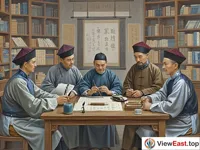
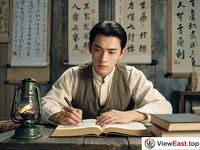

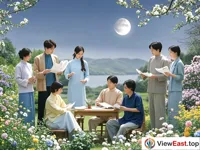
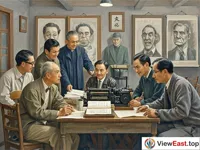
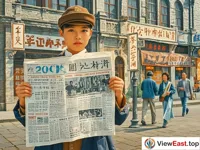
China's modern literature marks a significant transitional period in the history of Chinese literature. It witnesses the transformation of China from a feudal society to a modern one and documents the intellectual awakening and cultural exploration of Chinese intellectuals. The literary works from this period, set against a unique historical backdrop and rich cultural connotations, provide us with a window into the societal changes and cultural development of China.
I. The Beginning of Literary Transformation
From the late 19th century to the early 20th century, as Western culture infiltrated and domestic social conflicts intensified, Chinese literature began a profound transformation. After the failure of the Hundred Days' Reform, a group of intellectuals sought to modernize their culture. They advocated that literature should reflect reality and express genuine emotions to promote social progress. During this period, the language of literature began to shift from classical Chinese to vernacular Chinese, and the forms of literature became more diverse, including novels, poetry, drama, and essays.
II. Important Literary Schools and Writers
Realist Literature: Works such as Lu Xun's "A Madman's Diary" and "The True Story of Ah Q" reveal the darkness of feudal society and the distortion of human nature, establishing the foundation of realism in new literature.
Romantic Literature: Works like Guo Moruo's "The Goddess" express the pursuit of individual liberation and ideals.
New Moon Society: Wen Yiduo, Xu Zhimo, and others advocated for new metrical poetry, seeking form beauty and musicality in poetry.
Yu Si Society: Represented by Lu Xun, it advocated for free expression, opposed feudal ethics, and its sharp satire and profound exposure had a significant impact on the development of modern Chinese prose.
III. The Interaction Between Literature and Society
The development of China's modern literature is closely linked to the transformation of Chinese society. Literary works not only reflect social reality but also participate in promoting social change. For example, Lu Xun's works inspire reflection on traditional concepts through criticism of feudal ethics; while the literary creation in the New Culture Movement advocates for the ideas of science, democracy, and freedom, providing spiritual momentum for the modernization of Chinese society.